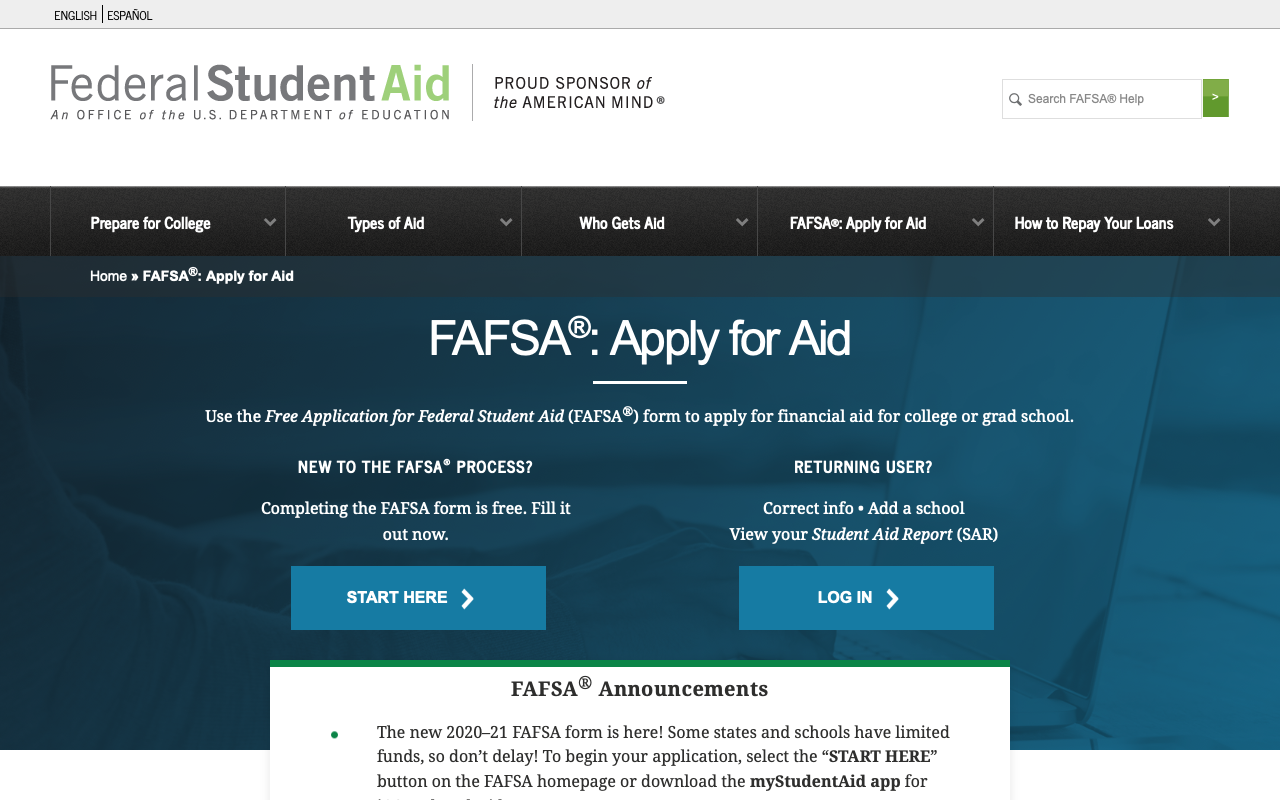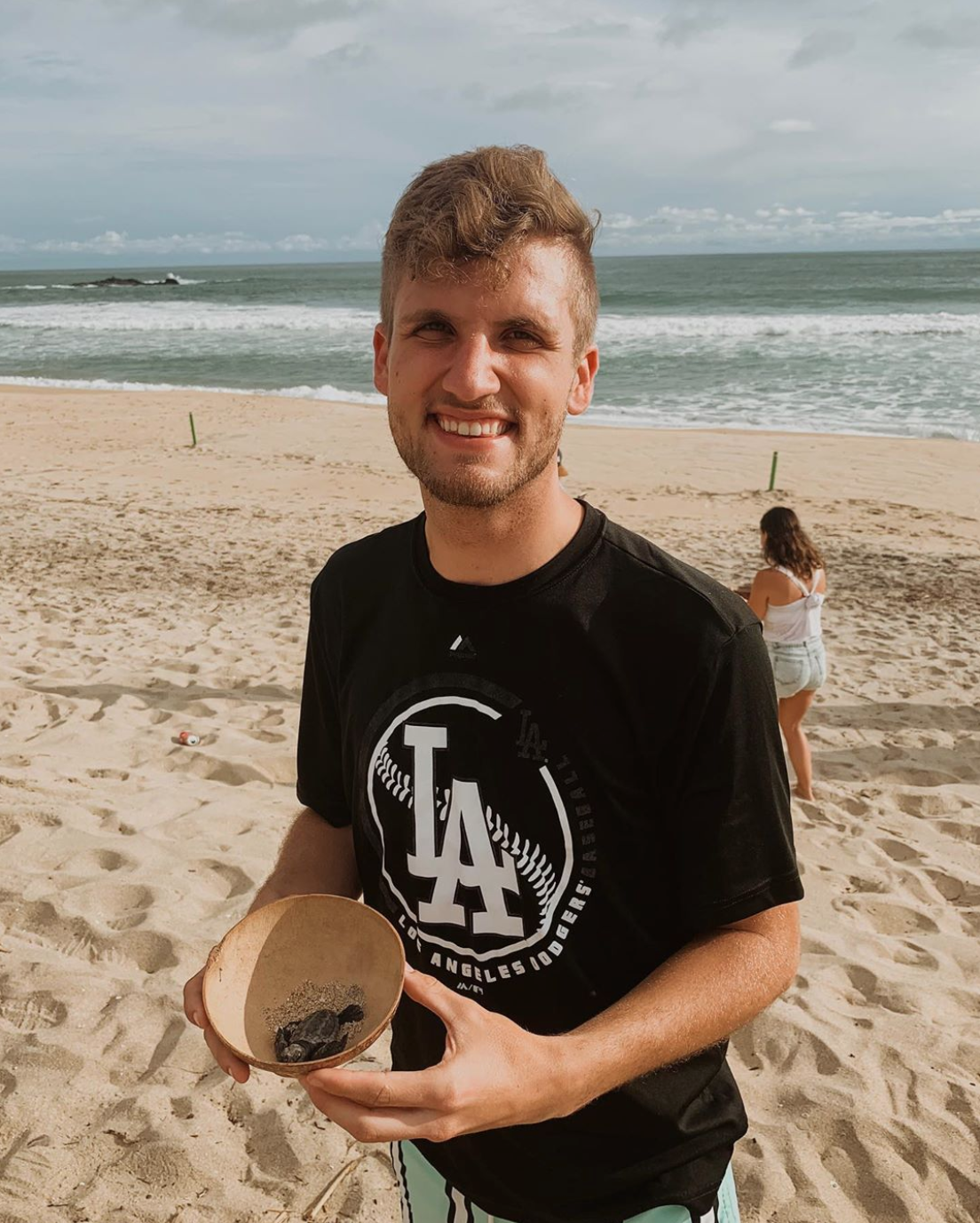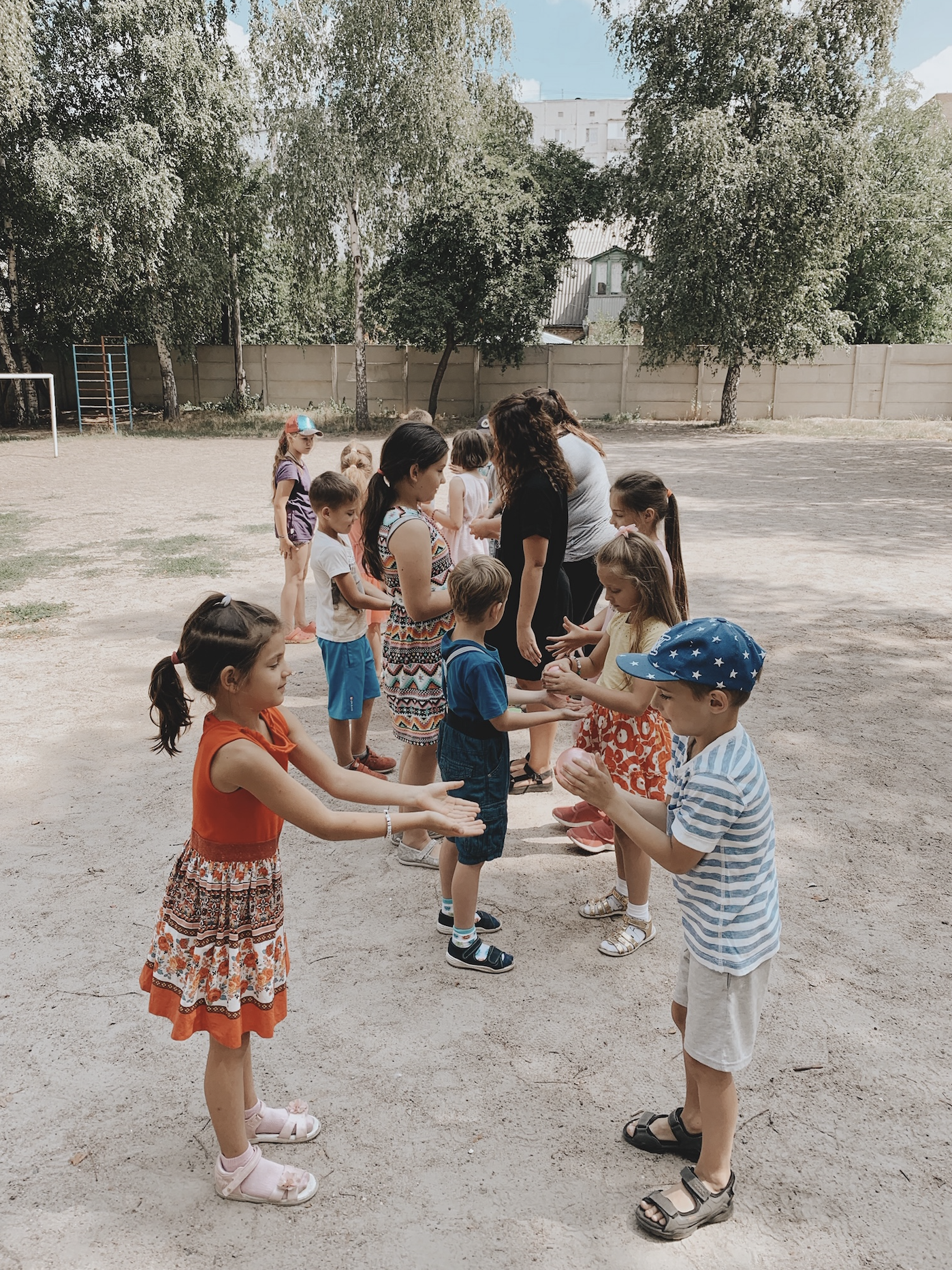
College is spendy right? Yep, it is. The government is pretty motivated to have you be educated, enough that the U.S. Department of Education budgets to help give financial aid to around 15 million students each year. Are you going to be one of them?
College students this is for you. If you're looking to make college life a bit easier, that probably starts with some financial help ... right?
Pst: There are also ways for you to afford to travel
A Guide All About Affording a Semester Abroad
You may qualify for some financial aid which would really help you out for things like paying your student tuition, buying all your textbooks, or even affording a semester abroad!
Where Do I Start?
You need to fill out the FAFSA. This is where your eligibility will be determined. Have questions on filling everything out? Go here.

What's The Difference Between Loans, Grants And Scholarships?
When you submit a FAFSA, you're applying for grants, loans, and work-study programs. Free money is free money right? Sort of ... some are more desirable than others.
Grants
A grant is basically free money. This is the one you want because you don't have to pay it back! However, this one is reserved for students who have a need for financial assistance (like lower income families), so you may or may not qualify. There's different types of grants which offer different amounts, but really they work they same way. If you qualify for a Pell Grant, you could get over $5,000 to use towards school.
Loans
Federal student loans have a fixed interest rate, which means your interest rate won't go up over time (and they're typically lower than you can find elsewhere). For example, if you get a fixed rate at 4% interest, when you start paying your loan back it will always be at 4%, even if rates have gone up since then. Most federal loans also have a grace period which means you don't need to pay anything back until after you've graduated (usually 6 months after).
There are different types of loans, but the most common are subsidized and unsubsidized. Subsidized means that you're not accruing interest while you're in school (how amazing is that??). They are for undergraduates only and are based on financial need. Unsubsidized means that your interest does accrue while you're in school, even if you're not paying it back yet.
Both undergraduate students and graduate students can qualify and it's not based on your financial need, which means you can qualify even if your parents make a good living. If you're middle class, it's common that you may receive both subsidized and unsubsidized loans of a certain amount.
Scholarships and work-study programs
Typically you'll find out about these through your university or in your own online searches (not through the FAFSA). Check with the financial aid department at your school or your school counselor to see what you can apply for.
Scholarships are basically free money as well (you won't pay these back like you do loans). They can range from a smaller amount all the way to paying all of your college expenses ("a full ride"). If you're still in high school, do a Google search for scholarships and if you're willing to put in the time, there's countless scholarships you can apply for.
There's a cool app called Scholly which helps you search for scholarships. Scholarships can be pretty competitive, so if you can stand out from the crowd (have great grades, volunteer experience like you'd get with ILP, creativity, unique backgrounds, etc) it helps a lot.

How Do I Know If I'll Qualify?
The amount you qualify (or don't qualify) for is based on academics (your grades, athletic ability, etc) and your financial need. Financial need is typically a huge factor, and that is determined by the cost of school you're attending (or planning to attend), your sources for income (do you have scholarships, savings, etc), and your parent's income known as "expected family contribution" or EFC.
You really don't know how much you can get unless you try and see. Fill out the FAFSA. You're really not losing anything, except the time it takes to fill it out. Worth it.
Where Does It Come From?
Most financial aid comes from state and federal governments like the U.S. Department of Education. Of course there's also scholarships, which typically come from the source - so an individual organization, sponsor, or your school.
If I Get Financial Aid, What Can I Use It Towards?
Grants and loans are deposited into your checking account so that you can use it however you need it. Use it to pay your text books, tuition, rent, your food card at the school's cafeteria, a car, a new laptop, etc. It's for what you need to get by as a college student who isn't earning a full time income. You can even use it towards your semester abroad doing things like volunteering!
If you receive a scholarship, it may work the same as grants and loans, but other times it's directly applied to your school (especially if it's provided by the school you're attending). In that case, it would be directly deposited to your student account to pay for tuition for example, so it's not as flexible.
When Can I Apply?
The FAFSA becomes available October 1 and the federal deadline is June 30. Although some is based on financial need, there are some aids that are first-come-first served, so you don't want to procrastinate filling it out.
States and individual sponsors may have their own deadlines as well, so again, the sooner you fill it out the better.
Good luck!
.jpg?width=650&height=650&name=Costa.Rica.(Slightly%20Older%20Kiddos).jpg)
Use your financial aid towards a semester abroad
Seriously — spend a semester volunteering in Asia, Europe, Africa or another ILP location .... all on your financial aid.
If you receive a grant for example, you could pay for your program fee to do a volunteer or study abroad semester (like ILP!). If you're doing a volunteer program, you can take online classes abroad, then you don't need to take a semester off. That way you can travel the world and not miss out on school!
















